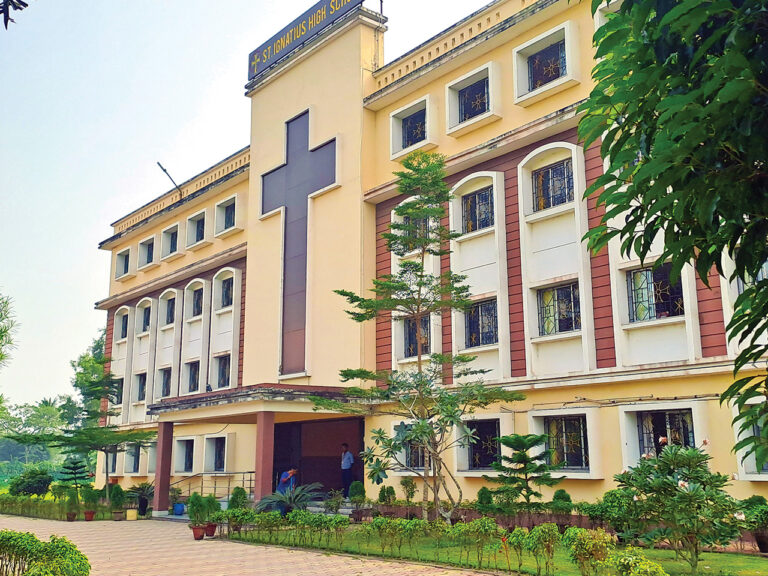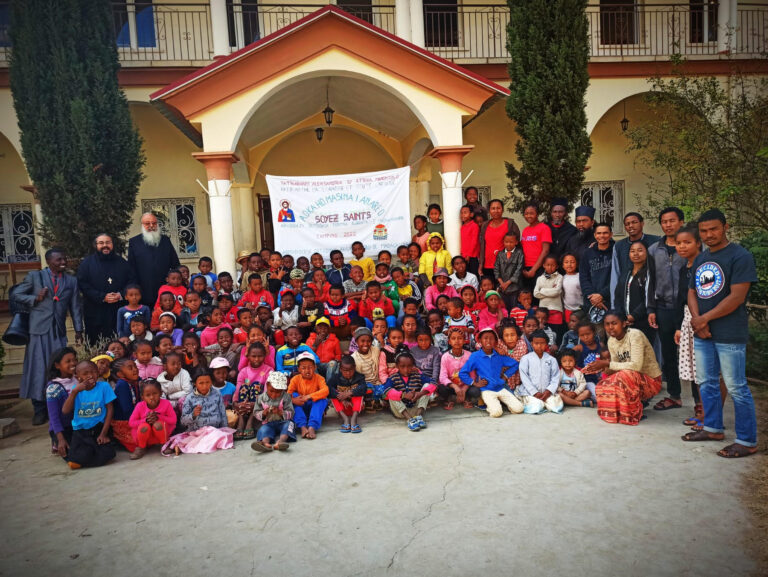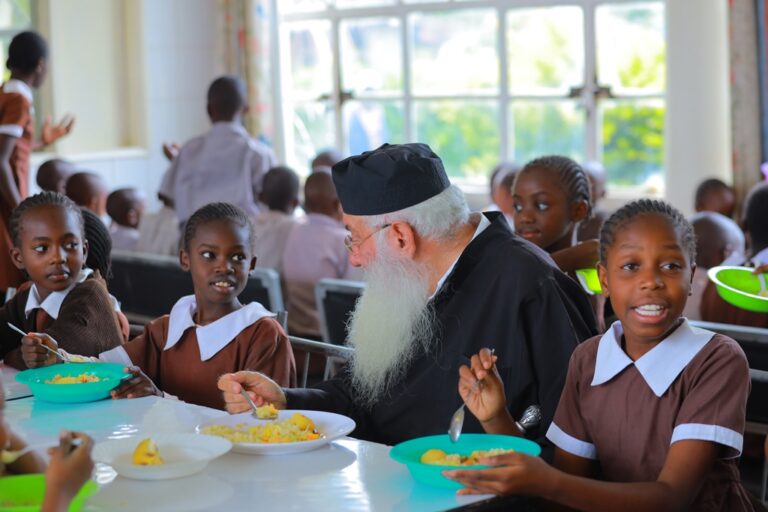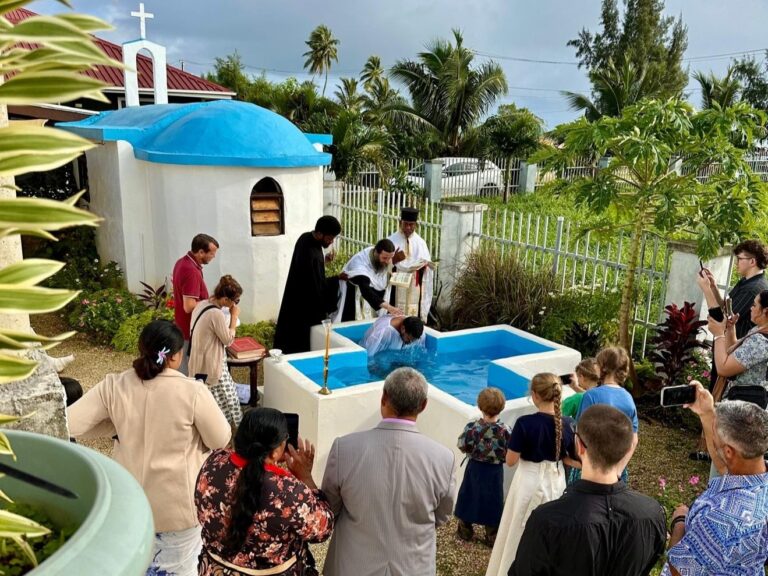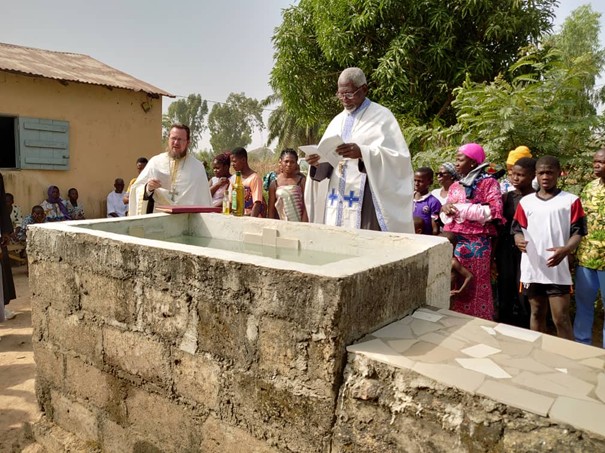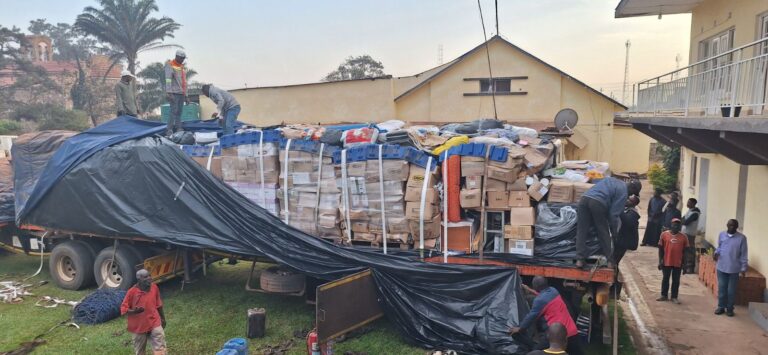Reporting on African missions in Africa: Sierra Leone
I often heard about Sierra Leone in the news. It was the time of the civil war and all you heard from that country was gruesome news. Sierra Leone, although it has diamond mines, is unfortunately one of the most poorest countries on the planet, with an average life expectancy of 30 years! When I met Fr. Themistocles who was the only missionary in Sierra Leone, I asked him if we could visit him and report for the ET3 show “True Scenarios”, he replied in the affirmative and warned me that things are very difficult. I did not pay much attention to his words and after a few months we managed to meet in Sierra Leone with the president of the Brotherhood of Orthodox Foreign Missionary Work, Mr. Vaios Pranzo and the cameraman Christos Kapriniotis. After a long and arduous journey we arrived late at night in the capital city of Freetown.
The village of the disabled
In the morning of the next day we set off for the village of the disabled created by Fr Themistocles. It was a couple of hours from Freetown. From afar, as soon as we were noticed, young and old alike ran to meet us. Some were crawling on the ground, others were walking with canes and the most privileged were in wheelchairs. Most were amputees without legs or arms. They were cut off by the rebels during the civil war, just to terrorize their opponents. As Fr. Themistocles explained to us, all the disabled found them on the streets of the capital where they begged to survive. They were staying overnight in a dilapidated house, whose owner had evicted them and they had nowhere else to stay. So Fr. Themistocles decided to create the village. He built small houses for the handicapped and their families, and in the centre of the village he created a “little house for the handicapped”. thatched hut which was the church and at the same time the school. Before we went inside for the traditional Divine Liturgy the village football team wanted to show us off. Tears rolled from our eyes when we saw them playing ball. Those without legs crawled on the ground, others ran after the ball with one leg and some with wheelchairs… Their joy was indescribable when they scored a goal. The match was tied 1-1 when the village priest, who was also the referee, blew the whistle. Fr. Themistocles entered the thatched hut and began the Divine Liturgy. He was followed by all the disabled people with their children. At the end Fr. Themistocles and Mr. Prantzos told them about the efforts that the Greek donors are making so that the village can have more houses, a medical clinic, a school and a church. Young and old alike applauded. They were all happy.
The village school!
After the church service was over, the children grabbed the chairs and began to change their seats! I didn’t understand what was happening. Fr. Themistocles explained to us that at that moment the church was being transformed into a school… Four classes were created and they were functioning simultaneously inside the church. One section was in the sanctuary of the church and the other three in the nave. We watched the class for a while and were speechless. These children may not have had anything to eat but they had a great appetite for learning. There may have been three or four children piled up on a desk, they may have been sitting on the ground, they may not have been listening to their teacher very well because next to them the children from the other classes were giving their own lesson, but these children were like sponges trying to “soak up” what their teacher was telling them. I will never forget those children with their big eyes, who were shining with enthusiasm and had such an appetite for letters… “We know that this situation is not the best, but we are trying to build a normal school“, Fr. Themistocles told us and added “the good news is that here, even under these conditions, children are learning to read and write. In many areas, unfortunately, there are no schools, you will see in a little while where we are going”.
In the slums of Freetown
Indeed, in a short time we were in one of the slums of Freetown. Wherever we went with Fr. Themistocles, we gave clothes, food, candy to the children. Everything was help from Greece or Australia. In the first slum we went to, some children were literally learning on the street. There were no desks and no blackboards. A handicapped teacher sat on the ground and most had no pencils or notebooks. I couldn’t understand “gri” from what he was saying to them. But I was jealous of those children’s eagerness to learn letters. Their parents carried dirt, stones, sticks and whatever else they could find useful in the vast garbage dump where they lived. They took it all to the market to sell it and ensure a plate of food. -Well, who buys stones and dirt, I asked. -In Sierra Leone everything is needed, Fr Themistocles replied. They put the stones in the foundations of their house. With the earth they make bricks for their houses. They leave them in the sun to dry and then they start building… When we arrived at the second slum we were shocked. As we entered the first houses we learned that five children had died that night. They died of malaria and could have been saved if they had taken a pill that costs less than one euro. The chief of the area told us that this was happening day and night. Unfortunately there was no doctor and the nearest hospital was two hours away.“If we had a small dispensary in this area we would have saved many children,” said Fr. Themistocles and called on Greeks to help set it up.
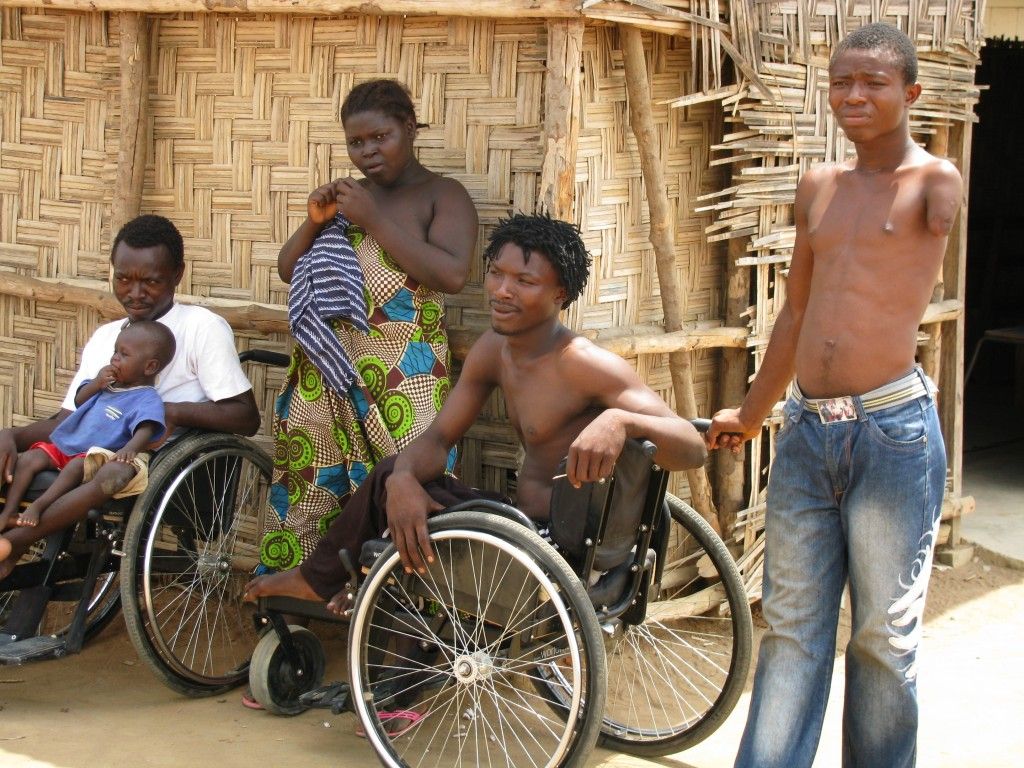
The missionary of Sierra Leone
We left with a heavy heart. In the car I asked Fr. Themistocles how he came to be in this country. Then I learned his heartbreaking story: Fr. Themistocles was born in Alexandria, Egypt to Greek parents and at the age of 13 they emigrated to Australia. He had no special ties to the church. When he was a student he was a Marxist and went from factory to factory talking to the workers. He liked rock music. He led a band and made a career in Australia. Later he worked as a university professor but one day he did a 180. He quit everything and became a missionary. He chose to go to Sierra Leone because the civil war that lasted 10 long years left many wounds. Tens of thousands of civilians had died horrible deaths and many children were left orphaned. The country was in ruins. On our tours with Fr. Themistocles, he showed us a bridge where hundreds of unsuspecting people were executed and then “disappeared” into the river. Even today, local fishermen find the skeletons of the victims.
The emissions
When we presented on “True Scenarios” in two consecutive shows the Sierra Leone and the efforts that Fr. Themistocles is making, it was like a miracle. The people were moved and in the midst of an economic crisis, they collected food, clothes and medicine worth a total of 100,000 euros. They also sent an ambulance and two dental machines!!! So who said that nowadays there are no people with humanity? There were our fellow citizens who, in addition to their contributions, offered their own selves. They transported the aid to the warehouses of the Brotherhood of Orthodox Foreign Mission in Filiro and loaded the containers that were sent to Sierra Leone. Others agreed to go to that country to help the work of Fr. Themistocles. We wish from the bottom of our hearts to Fr. Themistocles and all those who help his work to continue their efforts because theyreally do save hundreds of lives…

